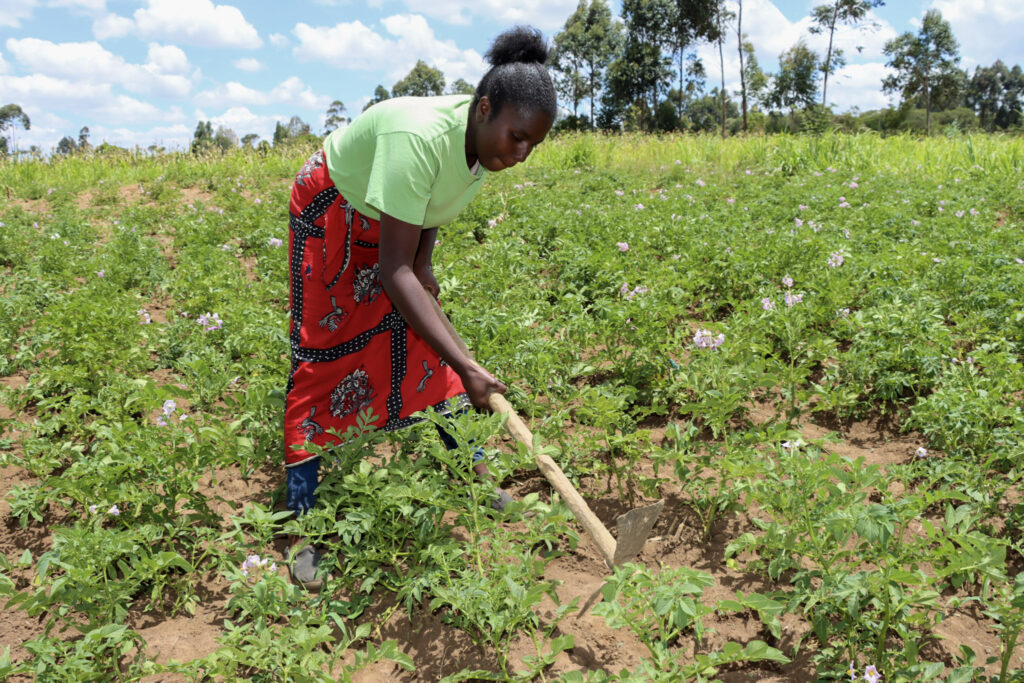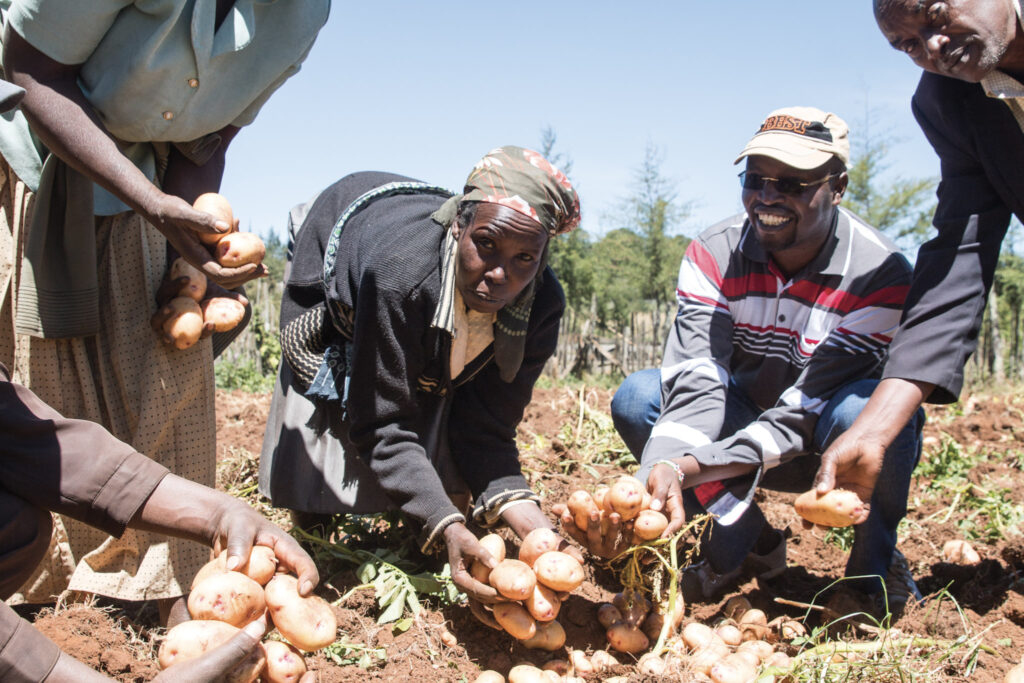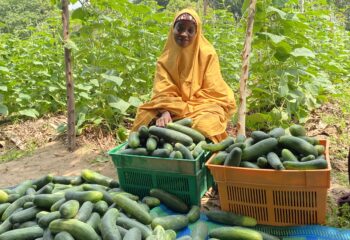
For the past 15 years, the International Fertilizer Development Center (IFDC) has been on the forefront of developing cutting-edge technologies to bolster soil health and agricultural productivity in Kenya. To achieve its mission, IFDC’s four-pronged strategy focuses on developing better technologies, catalyzing farm productivity, strengthening markets, and enabling impact. IFDC has partnered with donor organizations, national governments, private sector actors, and local entrepreneurs to strengthen its focus on developing and transferring fertilizer application technologies, as well as expanding market systems and value chains. By maintaining such focus and by working closely with its partners, IFDC ultimately strives to achieve the shared vision of a world without hunger.
As part of its ongoing efforts, IFDC Kenya develops and adapts nutrient-efficient, environmentally sound fertilizers; further, it validates soil and nutrient testing technologies and works to scale up production and adoption of new, tailored fertilizers. Additionally, IFDC Kenya refines Integrated Soil Fertility Management (ISFM). IFDC Kenya also analyzes policy and seeks to influence it favorably to enable fertilizer importation, business development, and smallholder adoption of fertilizer and other soil fertility technologies.
Through the USAID Bureau for Resilience, Environment, and Food Security (REFS)-funded SOILS-Space to Place program, IFDC seeks to enhance fertilizer use efficiency among smallholder farmers in Kenya and eight other sub-Saharan African countries. Through efficient fertilizer use, this initiative aims to reduce fertilizer waste by 60% and improve productivity and ultimately, profitability of smallholder farms.
In the past decade IFDC has catalyzed farm productivity by working closely with smallholder farmers to conduct on-farm research and demonstrations, expand engagement of women and youth, and encourage the use of improved information and communication technologies. Examples of these technologies include mobile phones and applications that widen farmers’ access to information about markets, weather, crops, pests, and business management.
The Potato Value Chain Capacity Building Project (PCB), which is being implemented in Nyandarua County, seeks to improve the livelihoods of small-scale farmers and families through the adoption of certified potato seed and new varieties as well as good agricultural practices (GAP). This has seen demand for certified seed rising from 7% to more than 18% in 2022 leading to a 60% increase in productivity thus enhancing food security, boosting incomes and improving livelihoods.
Currently, IFDC is developing agribusiness clusters as part of its efforts in market systems development. Development of these agribusiness clusters means bringing together relevant actors across the value chain, such as farmer groups, commodity buyers, agro-input dealers, processors, and financial service providers and building trust and long-term relationships among them. Building these relationships will lead to expanded access to inputs, financing, and output markets for smallholder farmers. Key priorities of this objective include developing agribusiness opportunities, especially for youth and women, and ensuring the supply of quality commodities to buyers and processors.

The Toward Sustainable Clusters in Agribusiness through Learning in Entrepreneurship (2SCALE) project addresses these priorities of developing agribusiness clusters. 2SCALE offers support services to its partners and business champions, which include small and medium enterprises and farmer groups. These services enable them to produce, transport, and supply quality food products, which go to local and regional markets, including base-of-the-pyramid consumers.
PCB works to strengthen potato seed production and supply chain by boosting access to quality inputs, such as certified seeds and agrochemicals, among farmers. PCB uses field demonstration plots to train smallholder farmers on practical skills for potato production. PCB also works to build the capacity of champion farmers so that they can provide much-needed extension services to other farmers. Additionally, this project aims to enhance access to financing and sharing market information through innovative channels.
To continue enabling impact in the country, PCB facilitates institutional capacity building in government research institutions and regulatory bodies through knowledge-sharing, exchange programs, joint research, and formal training.
As an Africa Agri Expo partner, IFDC will showcase its expertise and initiatives in Kenya by taking part in panel discussions and networking at an exhibition booth during the seventh Africa Agri Expo that will be held February 19-20, 2024.




